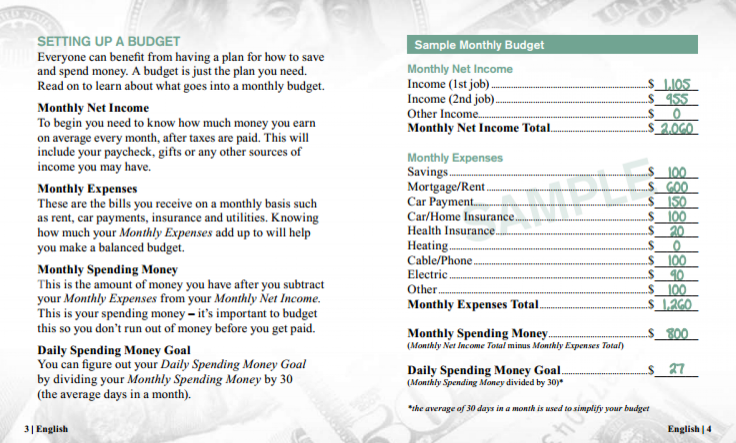McDonald's Minimum Wage: Budget Guide Unintentionally Shows Minimum Wage Salary Is Impractical and Unlivable [PHOTO]

A budgeting guide created by Visa Inc. (NYSE:V) to teach McDonald’s Corporation (NYSE:MCD) employees how to budget surfaced on Monday illustrating the impracticality of living off minimum wage.
While the guide is intended to help employees budget their income, it unintentionally demonstrated how unlivable minimum wage is through the sample budget presented in the guide. On page four of the document is a sample monthly budget that assumes an employee has a second job on top of working at McDonald’s. Where the document gets really outrageous is the assumption that health insurance is only $20 per month, rent is $600 per month, and the worker spends $0 on heating.
The real cost of living is much higher, with individual health insurance averaging $215 in the United States, according to the Henry J. Kaiser Family Foundation. However, the Wall Street Journal reported in 2010 that McDonald's offered a plan that cost $14 per week, with benefits capped off at $2,000, and another plan at $32 per week that capped off at $10,000 coverage. However, with the passage of the Affordable Care Act, colloquially known as Obamacare, McDonald’s is expected to spend even more to meet the health care law’s requirements to cover employees.
The sample rent is just as impractical, as New York City housing costs have shot up to more than $3,000 per month for an average apartment. In comparison, the $600 per month listed on the sample budget wouldn’t even get a room in an apartment in New York City. The sample budget itself is quite unrealistic when applied to real-life scenarios.
Minimum wage in the United States is mandated at $7.25 per hour, according to the Department of Labor. Taking into account a full-time schedule, deductions for federal tax, social security and Medicare, the take-home pay is even less than the sample budget at $1,038.40. This sample take-home pay does not take into account state income taxes, which make take-home pay even lower.

In comparison, the CEO of McDonald’s, Don Thompson, received a compensation package worth $13.8 million in 2012, according to the Associated Press. Fast food workers from McDonald’s, Wendy’s (NASDAQ:WEN), Taco Bell, KFC, Burger King (NYSE:BKW) and Domino’s Pizza (NYSE: DPZ) went on strike in 2012 to protest the lower wages, according to a report by the International Business Times.
You can view the entire document here and the controversial sample budget in the picture above.
What do you think about the guide? Let us know in the comments.
© Copyright IBTimes 2024. All rights reserved.





















